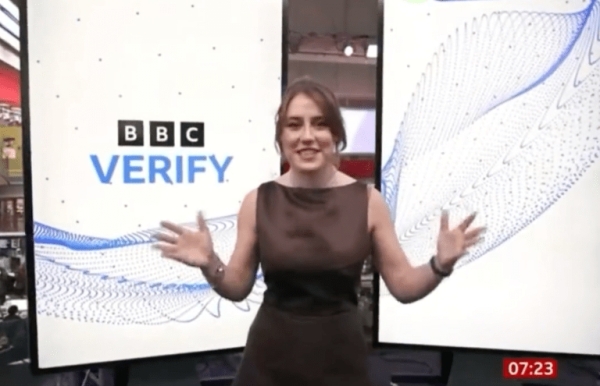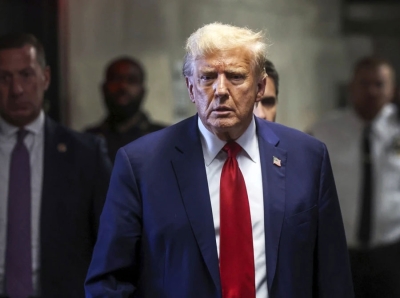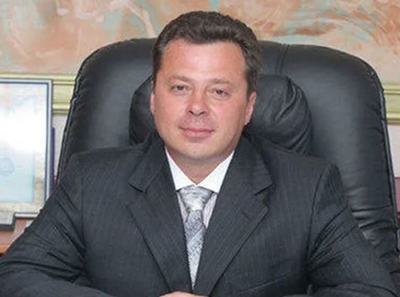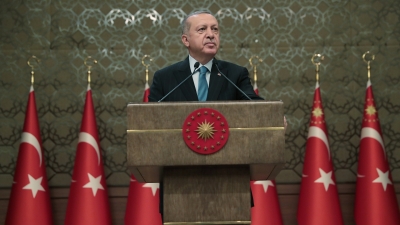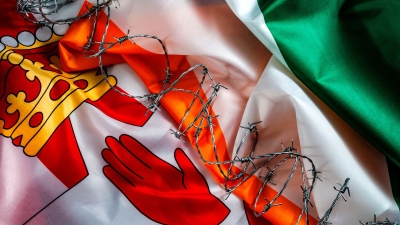Little is known about the history of Marianna Spring, the BBC’s first “disinformation correspondent.” But her record of churning out disinfo of her own in the service of British government objectives sends a bright red flag up over the new Verify project.
The launch of BBC Verify, “a new brand to address the growing threat of disinformation and build trust with audiences by transparently showing how BBC journalists know the information they are reporting,” has raised questions about whether the British state broadcaster is ramping up plans to manufacture consent for official objectives while maligning dissent.
The endeavor is said to be “a highly specialized team with a range of forensic and Open Source Intelligence (OSINT) capabilities that enable them to go beyond conventional newsroom techniques.” In all, 60 BBC journalists are involved – including the “specialist disinformation correspondent” Marianna Spring.
The week after Verify’s rollout was announced, the 27-year-old Spring took to airwaves to acquaint BBC Breakfast viewers with her new venture. She explained its mission was to “verify video, factcheck, counter disinformation, and analyze really complex stories so we can get to the truth of what’s going on.”
Standing before three interactive video screens, Spring outlined an array of investigative projects soon to appear under the auspices of Verify. They included an initiative employing “undercover accounts” which comprise a set of fake “characters” active on social media networks. The ostensible purpose of the sock-puppets created by Spring and her BBC associates is to “really understand polarization online and what’s happening on our social media feeds and what we’re being recommended and being pushed to us [sic] can affect all of us.”
Welcome to BBC Verify! I chatted to BBC Breakfast about it.
Everything from interrogating social media feeds using undercover accounts and investigating real-world impact of mistruths, hate and conspiracy movements to piecing together what’s happening with satellite imagery. pic.twitter.com/4OoaiCd4ah
— Marianna Spring (@mariannaspring) May 22, 2023
On the last screen, she daubed a crude diagram linking “local communities,” “far-right figures,” “alternative media,” a “conspiracy theory newspaper,” “funding,” and “foreign links”. These elements were components of a forthcoming investigation into the alleged proliferation of a “conspiracy movement in the UK,” which has purportedly “evolved and intensified since the pandemic,” and could, Spring suggested, create a situation comparable to January 6th, or the bizarre and largely forgotten “Fourth Reich” coup in Germany.
That Verify is managing bogus personae on social networks in the manner of the British Army’s 77th Brigade, or the Pentagon’s Operation Earnest Voice, is troubling enough. But Spring’s history of churning out disinformation in the service of British government objectives adds a whole new level of concern about the initiative.
BBC star rises from out of nowhere
Beyond her education at elite British educational institutions like Oxford University’s Pembroke College, little is known about Spring’s background. She studied at Oxford during the period when disgraced former MI6 chief Richard Dearlove served as its master. While there, she spent an extended period in Russia, working for the Western-funded Moscow Times. Her LinkedIn profile has been cached by the Internet Archive suspiciously few times since its creation, suggesting certain captures may have been scrubbed upon request.
There can be little doubt Spring’s online footprint elsewhere has been subjected to a dedicated cleanup operation. One of the most prolific editors of her Wikipedia page is the mysterious ‘Philip Cross’ profile, a notorious troll whose fanatical dedication to vandalizing the entries of anti-war, anti-imperialist public figures, while whitewashing and beautifying those of establishment shills and deep state actors, is so prolific that it has even been acknowledged by the mainstream media.
Spring’s proximity to the British intelligence sector was highlighted by a shadowy Foreign Office contractor, Amil Khan, when he proposed her as a potential participant in a meeting aimed at devising methods to destroy this outlet, The Grayzone.

Nonetheless, based on public records, it seems Spring joined the BBC almost immediately upon leaving University in 2018, becoming the British state broadcaster’s very first dedicated “disinformation reporter” in March 2020. The timing was precipitous, for this was precisely when the World Health Organization declared the COVID-19 pandemic. The British government responded almost immediately by psychologically bludgeoning its population into compliance with harsh lockdown measures.
The government’s propaganda campaign depended heavily on fearporn-style propaganda about the lethality of the virus to nudge the public into compliance. The perverse psychological push is the subject of a wider parliamentary probe into London’s handling of the crisis. At the same time, the British government viciously demonized any and all who questioned pandemic restrictions, mask and vaccine mandates, and vaccine passports as a vast, fascistic, potentially violent fifth column infesting both on and offline spaces.
Deployed as an influential public face of this effort, Spring relied heavily on an incestuous cluster of shadowy state-funded organizations to bolster her reporting. Foremost among them was the Institute for Strategic Dialogue (ISD), a shadowy NATO state contractor that reaps millions to research supposed “disinformation”. Invariably, this term serves as a basis for defaming and suppressing anti-establishment viewpoints, and censoring inconvenient truths.
Catch my report on @BBCNews at Six about who starts – and spreads – all that coronavirus misinformation online‼️
The sources of misleading stuff continue to challenge efforts by the government and social media companies

